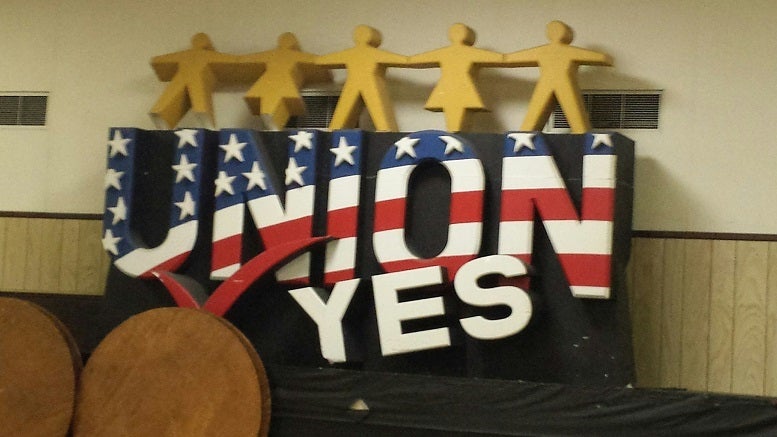News
For Better Wages, Benefits, it’s Union All the Way

Union membership leads to higher wages and better access to health insurance and paid sick leave than those without a union, a new Economic Policy Institute (EPI) report states.
The document details the importance of unions and workers’ collective action in establishing an equitable economy, particularly during the coronavirus pandemic. It finds that unionized workers earn on average 11.2 percent more in wages than nonunionized peers who are in the same industry and occupation with similar education and experience.
Additionally, 94 percent of workers covered by a union contract have access to employer-sponsored health benefits, compared with just 68 percent of nonunion workers and 91 percent of workers covered by a union contract have access to paid sick days, compared with 73 percent of nonunion workers.
“Now more than ever, we need strong labor laws to protect working people from the health and economic impacts of the coronavirus pandemic,” said Lynn Rhinehart, EPI senior fellow and one of the report’s authors. “We need policymakers to use their power to halt and reverse the four-decades-old trend of rising inequality, while also creating meaningful reforms that help workers organize unions.”
Payment disparities between union and nonunion workers are particularly prevalent in the minority community, according to the report. Unionized Black workers are paid 13.7 percent more than their nonunionized peers, while unionized Hispanic workers are paid 20.1 percent more than their nonunionized peers.
However, as EPI points out, only 1 in 9 U.S. workers were covered by a union contract in 2019, while 48 percent of all nonunion workers say they would vote for a union if given the opportunity.
“The right to a union is a racial justice issue, as well as an economic justice issue,” said Celine McNicholas, EPI’s Director of Government Affairs and one of the report’s authors. “Unions help shrink the Black–white wage gap, due to the dual facts that Black workers are more likely than white workers to be represented by a union, and Black workers who are in unions get a larger boost to wages from being in a union than white workers do. Unions also provide a crucial voice to workers in which they can address issues of discrimination and inequities at their workplace.”
The document explains that a badly broken system governing collective bargaining has eroded unions and worker power more broadly, contributing to both the suffering during the pandemic and the extreme economic inequality exacerbated by COVID-19.
It recommends a slate of federal and state policy reforms to promote workers’ collective power and grow union density, including the Protecting the Right to Organize Act, the Public Sector Freedom to Negotiate Act and the Public Safety Employer-Employee Cooperation Act.
With union popularity at its highest since 2003, it’s time for all Americans to join the movement!